
To those who have yet to see Jordan Peele’s creepy, funny, and absolutely thrilling new film Us –– and why the shit haven’t you? –– rest assured, the following list is light on spoilers. We don’t want to ruin the fun for anyone who has yet to be lead by Peele’s bold and utterly assured direction in his latest horror movie masterclass. But that said, here is a bare-bones summation before we get on with recommending similar nightmare-addled and/or pitch dark comedies that have more than a few cross-reference points with Us.
Lupita Nyong’o is absolutely riveting and exhibits near infinite range as Adelaide Wilson, a woman recovering from a childhood trauma who retreats with her husband Gabe (Winston Duke), her son Jason (Evan Alex), and daughter Zora (Shahadi Wright Joseph) to the beachfront home where she grew up and near where said trauma occurred.
As she grows increasingly concerned by odd coincidences and strange omens that something awful is going to occur her darkest fears seem to actualize when four mysterious and shadow-obscured strangers descend upon their home, instigating the Wilsons into a fight-or-flight struggle. And what’s even odder is that the strangers appear to be doppelgängers of the Wilsons, and before you can say “dead ringers” the shit and the fan are fatefully assigned.
The following films are connected both directly and indirectly to Peele’s film, and please join the discussion by making your own suggestions in the comment section below. And while this may seem like a bold assertion, I think that Us is the horror film to beat in 2019. Mark my words, this is destined to be a classic.
10. Get Out (2017)
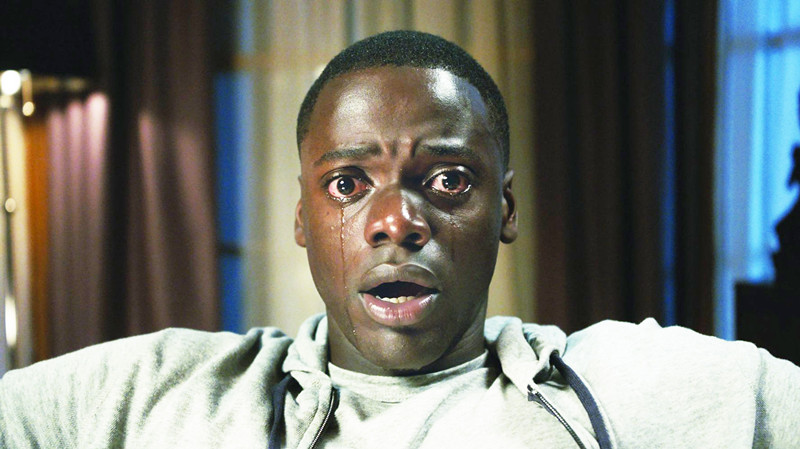
Intelligently satiric, incredibly horrific, profoundly funny, and deeply resonant for anyone who thoughtfully considers the issue of race in North America, Jordan Peele made an outstanding directorial debut in 2017 with Get Out (which like Us, he also wrote, and in this instance won an Oscar for his screenplay).
Riffing on Stanley Kramer’s Guess Who’s Coming to Dinner (1967), Chris Washington (Daniel Kaluuya), with some well-placed reservations, reluctantly but good-naturedly accompanies his new girlfriend Rose Armitage (Allison Williams) for a weekend in the country with her upscale folks (Catherine Keener and Bradley Whitford).
Knowing that the only other African Americans within screaming distance will be the Armitage’s servants, it’s no wonder that Chris is nervous about how Rose’s family will receive him, even knowing that they are liberal-minded, educated, and easy-going.
“The thing Get Out does so well – and the thing that will rankle with some viewers – is to show how, however unintentionally, these same people can make life so hard and uncomfortable for black people,” wrote The Guardian’s Lanre Bakare. “It exposes a liberal ignorance and hubris that has been allowed to fester. It’s an attitude, an arrogance which in the film leads to a horrific final solution, but in reality, leads to a complacency that is just as dangerous.”
Get Out is great as an uncomfortable comedy, but it excels at social commentary and reconstituted horror movie hyperbole. Funny, frightening, and perpetually thought-provoking, Peele expertly provides a slow-build with some great twists, palatable payoffs, and plenty of wit. This is an excitedly ambitious film from Peele, and a poignant one, and it anticipates the much larger scope that would follow with his follow-up, Us.
9. The Lost Boys (1987)
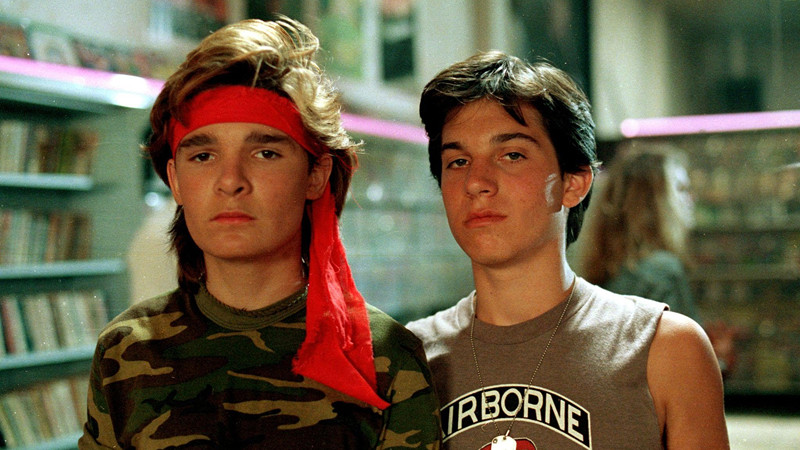
Astute observers and fans of 1987’s The Lost Boys will pick up on a reference to the film in the opening sequence to Us, which takes place on the Santa Monica boardwalk in 1986 (HINT: the filming location and shooting date that The Lost Boys was made).
“One thing about living in Santa Carla I never could stomach,” quips Grandpa (Barnard Hughes) to his beleaguered and bleary family, “all the damn vampires.” It’s fair to say that Joel Schumacher’s directing career may have peaked early with his teen horror comedy tour de force The Lost Boys, and so be it.
A staple of 1980s American pop cinema, The Lost Boys has it all: impeccable production design, a great script that blends laughs with scares, sterling direction, and a winning cast.
When divorcee Lucy Emerson (Dianne Wiest) moves to a small town in northern California with her teenage sons Michael (Jason Patric) and Sam (Corey Haim) the stage is set when angsty Michael meets a dreamy hippie babe named Star (Jami Gertz). Star rolls with a gang of free spirited men, the titular “Lost Boys”, led by David (Kiefer Sutherland, in an iconic turn), who, spoiler alert, are a bunch of vampires.
Add the vampire-obsessed comic book dorks the Frog brothers into the mix (Corey Feldman and Jamison Newlander) and you get one of the most memorable, epochal, and enduring vampire films of the 1980s. Not only does the film gleefully reimagine many of the genre conceits, it reshapes them into a more palatable but no less amusing amalgam of dread and drollery.
8. The Invitation (2016)
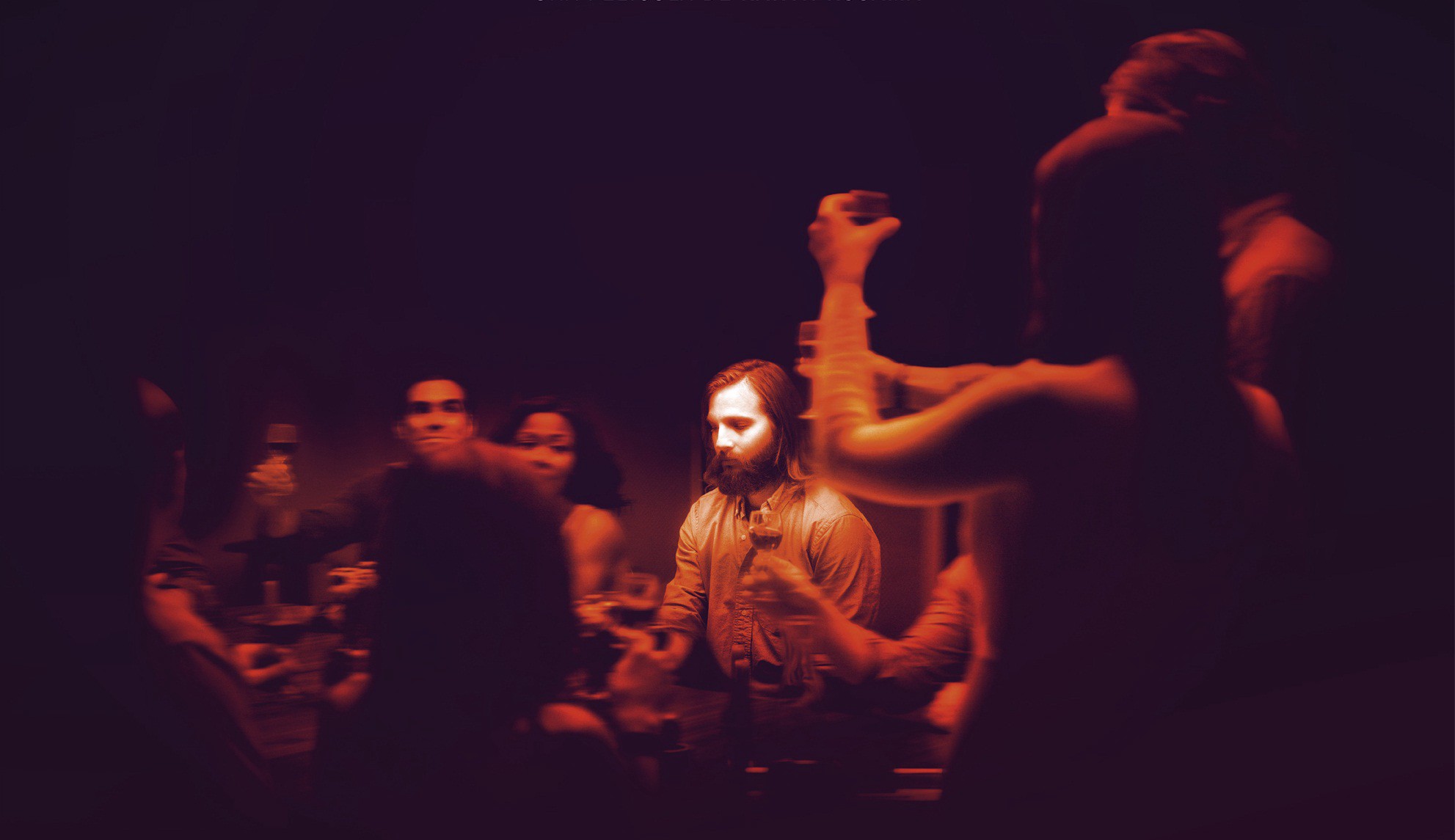
An astonishingly effective dinner-party-from-hell maze of mental anguish, Karyn Kusama’s The Invitation is a superb slow-burn thriller and one that, as it unravels, has more than a few things in common with Us. We have a strained family coming to terms with past trauma, and without giving too much away for either film, both deal with a sinister conspiracy.
Will (Logan Marshall-Green) is attending a dinner party at his former abode in the Hollywood Hills, and begins to suspect that the hosts, Eden (Tammy Blanchard), who’s also his ex-wife, and her New Age-y new man David (Michiel Huisman), may have some nastiness in store for the assorted guests, or at the very least some rather blatant cult-recruitment into the budding new California trend dubbed “the Invitation”.
Kusama expertly ratchets up the tension in a steady bow from bonhomie to balls-out viciousness while also dropping some smart truth bombs about depression, grief, and surviving the peaks and valleys of the modern age.
Elegant nuance and tangible dismay smartly seesaws with our hero’s troubled psyche and all the slow-building pressure arrives at an awesomely unforgettable finish that’s eerie and alarming enough to have you cancelling dinner plans for the foreseeable future. Essentially something of a small-scale chamber piece, The Invitation makes for a suitably delightfully macabre gem that you’d better RSVP or risk grievous bodily harm.
7. The Tenant (1976)
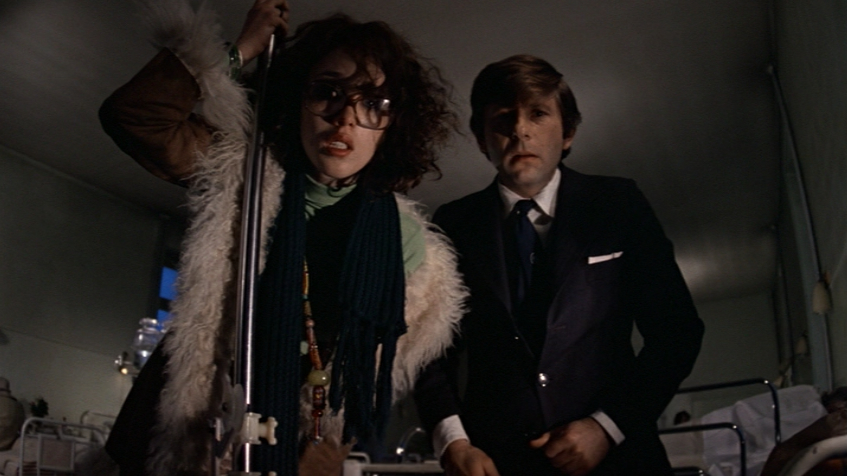
Roman Polanski’s oft overlooked phantasmagorical fever dream, The Tenant uses many horror-movie conventions to turn everyday life into a Grand Guignol procession into the void, and that alone makes it something of a 1970s companion film to Peele’s Us (and Isabelle Adjani’s dual role as two very similar but also very different neighbors is another). As the eponymous tenant, Polanski casts himself as Trelkovsky, an outsider newly relocated to a Parisian apartment house.
Based on Roland Topor’s 1964 novel “Le Locataire Chimérique”, The Tenant takes psychological dread and emotional stability to extremes, making for nerve-racking, bleakly comical infirmity as Trelkovsky’s new neighbors are an odd assortment of freaks and eccentric shut-ins (the aforementioned Adjani is joined by other acting greats such as Melvyn Douglas, and Shelley Winters, all great in their garish roles).
Within the crumbling confines of an old and spooky building, one believably cursed with the spectre of suicide and perhaps something more, Trelkovsky’s growing panic is palpable. Without spoiling any supple surprises, let’s just say that the film engages potential impersonators (à la Us) along with an ending that’s as cruel, and jet-black as can be.
6. The Double (2013)
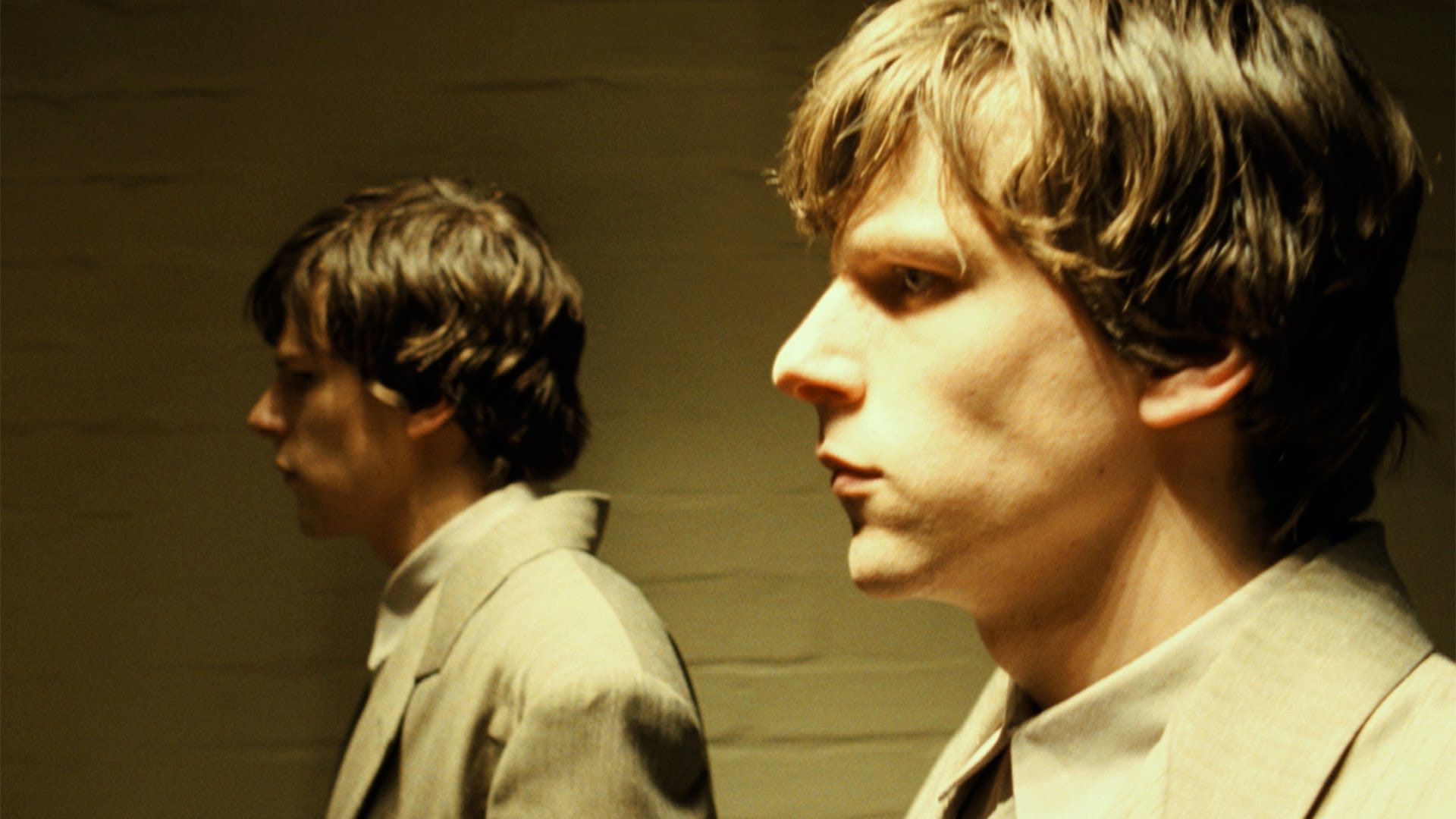
Jesse Eisenberg is nebbish database processor Simon James in Richard Ayoade’s calamitous dark comedy The Double. Simon slaves away thanklessly for an unnamed Orwellian company and its autocratic boss, Mr. Papadopoulos (Wallace Shawn) in a retro-dystopian future akin to Terry Gilliam’s Brazil (1985) with a whisper of Kafka, in a fable-like tale loosely based off Dostoevsky’s novella of the same name. All the dual role mischief of evil twins aligns Ayoade’s film with Peele’s.
Simon’s heart is in twain over au fait love interest Hannah (Mia Wasikowska) but, while he fumbles for his affections a newcomer shows up at work, one James Simons, his exact double, though no one but Simon seems aware of this uncanny instance.
Eisenberg is a delight to watch as he goes from graceless fool to affably evil twin, each with aplomb, and his energetic performance is equally matched by Ayoade’s faultless direction. The film may be boundlessly bleak, it is also kaleidoscopic, off-kilter, and runs amok with noir nods and artful umbrage.